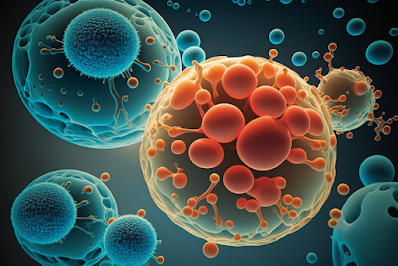Parenthood is a cherished dream for many, but infertility can be a formidable obstacle on this journey. In recent years, the field of reproductive medicine has witnessed groundbreaking advancements, and one such revolutionary approach is the use of stem cell therapy in Turkey for infertility treatment. Stem cells are now at the forefront of a new era in reproductive health with their remarkable ability to transform into various cell types. This blog explores stem cell therapy's promising role in transforming the infertility treatment landscape and revolutionizing parenthood.
Understanding Stem Cells and
Infertility
Stem
cells are unique cells that can differentiate into specialized cells and
regenerate tissues. This inherent ability makes them a potential game-changer
in treating various medical conditions, including infertility. In reproductive
health, stem cells address ovarian dysfunction, sperm abnormalities, and
uterine disorders.
Ovarian Dysfunction
One
of the primary causes of female infertility is ovarian dysfunction, which can
lead to irregular ovulation or premature ovarian failure. Stem cell
infertility treatment offers a promising solution by rejuvenating the
ovarian tissue and promoting the development of healthy eggs. It has the
potential to restore fertility in women facing challenges due to ovarian
issues.
Sperm Abnormalities
Male
infertility often stems from sperm abnormalities, including low sperm count and
poor sperm motility. Stem cell therapy promises to repair damaged testicular
tissue and enhance sperm production. This innovative approach may offer hope to
couples struggling with male factor infertility.
Uterine Disorders
The
uterus plays a crucial role in supporting a healthy pregnancy. Stem cell
therapy for infertility can be utilized to address uterine disorders, such
as endometrial thinning or scarring. By promoting the regeneration of the
uterine lining, it may improve the chances of successful implantation and
pregnancy.
Clinical
Advances in Stem Cell Therapy for Infertility
Recent
clinical trials and studies have provided encouraging results, showcasing the
efficacy and safety of stem cell therapy treatment. Researchers have
explored various sources of stem cells, including embryonic stem cells,
mesenchymal stem cells, and induced pluripotent stem cells, in reproductive
medicine.
Embryonic Stem Cells
A
cell type in the body can be differentiated from embryonic stem cells.
Researchers are investigating their use in generating gametes (sperm and eggs)
for individuals with infertility. Stem cell therapy in Turkey could be a
groundbreaking development, offering a novel approach to overcoming complex
fertility challenges.
Mesenchymal Stem Cells
Mesenchymal
stem cells, derived from sources such as bone marrow or adipose tissue, have
shown promise in promoting tissue repair and regeneration. In the context of
infertility, these cells may contribute to the restoration of damaged
reproductive tissues, offering hope to couples facing various fertility issues.
Induced Pluripotent Stem Cells
(iPSCs)
iPSCs
are reprogrammed cells with characteristics similar to embryonic stem cells.
Scientists are exploring the potential of iPSCs in generating functional
gametes, providing a personalized and regenerative approach to infertility
treatment.
Ethical Considerations and Future
Perspectives
While the potential of stem cell therapy treatment is immense, ethical considerations must guide its responsible development and application. Striking a balance between scientific progress and ethical principles is crucial to ensuring the ethical use of stem cells in reproductive medicine.
As
researchers continue to unravel the complexities of stem cell biology, the
future holds exciting possibilities for revolutionizing parenthood. Stem cell
therapy in infertility treatment has the potential to redefine traditional
approaches, offering renewed hope and opportunities for couples longing to
embrace the joys of parenthood.
Experience Parenthood's Joy with
Lifeline Turkey!

Comments
Post a Comment